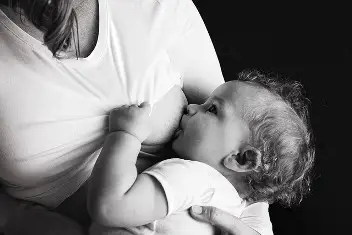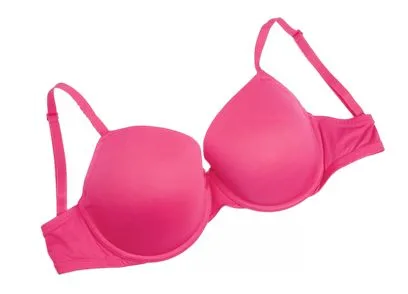
Breast Cancer Prevention
“An ounce of prevention is worth a pound of cure.”
Benjamin Franklin
According to the WHO between 30% and 50% of cancer deaths could be prevented by modifying or avoiding key risk factors and implementing existing evidence-based prevention strategies.
Breast cancer prevention – reduce risks
What Can I Do to Reduce My Risk of Breast Cancer?
Source: Division of Cancer Prevention and Control, Centers for Disease Control and Prevention
What Are the Risk Factors for Breast Cancer?
Studies have shown that your risk for breast cancer is due to a combination of factors. The main factors that influence your risk include being a woman and getting older. Most breast cancers are found in women who are 50 years old or older.
Some women will get breast cancer even without any other risk factors that they know of. Having a risk factor does not mean you will get the disease, and not all risk factors have the same effect. Most women have some risk factors, but most women do not get breast cancer. Talk with your doctor about ways you can lower your risk and about screening for breast cancer.
Risk Factors You Cannot Change
- Getting older. The risk for breast cancer increases with age. Most breast cancers are diagnosed after age 50.
- Genetic mutations. Women who have inherited changes (mutations) to certain genes, such as BRCA1 and BRCA2, are at higher risk of breast and ovarian cancer.
- Reproductive history. Starting menstrual periods before age 12 and starting menopause after age 55 expose women to hormones longer, raising their risk of getting breast cancer.
- Having dense breasts. Dense breasts have more connective tissue than fatty tissue, which can sometimes make it hard to see tumors on a mammogram. Women with dense breasts are more likely to get breast cancer.
- Personal history of breast cancer or certain non-cancerous breast diseases. Women who have had breast cancer are more likely to get breast cancer a second time. Some non-cancerous breast diseases such as atypical ductal hyperplasia or lobular carcinoma in situ are associated with a higher risk of getting breast cancer.
- Family history of breast or ovarian cancer. A woman’s risk for breast cancer is higher if she has a mother, sister, or daughter (first-degree relative) or multiple family members on either her mother’s or father’s side of the family who have had breast or ovarian cancer. Having a first-degree male relative with breast cancer also raises a woman’s risk.
- Previous treatment using radiation therapy. Women who had radiation therapy to the chest or breasts (for instance, treatment of Hodgkin’s lymphoma) before age 30 have a higher risk of getting breast cancer later in life.
- Exposure to the drug diethylstilbestrol (DES). DES was given to some pregnant women in the United States between 1940 and 1971 to prevent miscarriage. Women who took DES have a higher risk of getting breast cancer. Women whose mothers took DES while pregnant with them also may have a higher risk of getting breast cancer.
Risk Factors You Can Change
Being physically active can help lower your risk of getting breast cancer.
- Not being physically active. Women who are not physically active have a higher risk of getting breast cancer.
- Being overweight or having obesity after menopause. Older women who are overweight or have obesity have a higher risk of getting breast cancer than those at a healthy weight.
- Taking hormones. Some forms of hormone replacement therapy (those that include both estrogen and progesterone) taken during menopause can raise risk for breast cancer when taken for more than five years. Certain oral contraceptives (birth control pills) also have been found to raise breast cancer risk.
- Reproductive history. Having the first pregnancy after age 30, not breastfeeding, and never having a full-term pregnancy can raise breast cancer risk.
- Drinking alcohol. Studies show that a woman’s risk for breast cancer increases with the more alcohol she drinks.
Research suggests that other factors such as smoking, being exposed to chemicals that can cause cancer, and changes in other hormones due to night shift working also may increase breast cancer risk.
Who Is at High Risk for Breast Cancer?
If you have a strong family history of breast cancer or inherited changes in your BRCA1 and BRCA2 genes, you may have a high risk of getting breast cancer. You may also have a high risk for ovarian cancer.
Ditch the cheese
The following is a snippet from a News Release published by Physicians Committee for Responsible Medicine
Doctors Petition FDA to Require Breast Cancer Warning Label on Cheese
WASHINGTON – “Dairy cheese contains reproductive hormones that may increase breast cancer mortality risk.” That’s the warning label the Physicians Committee for Responsible Medicine—a nonprofit with more than 12,000 doctor members—is petitioning the Food and Drug Administration to require cheese manufacturers to prominently display on all dairy cheese products.
Dairy products contain traces of estrogens from cows, and as milk is converted to cheese, the estrogens are more concentrated. While they are only traces, they appear to be biologically active in humans, increasing breast cancer mortality.
The Life After Cancer Epidemiology study found that, among women previously diagnosed with breast cancer, those consuming one or more servings of high-fat dairy products (e.g., cheese, ice cream, whole milk) daily had a 49 percent higher breast cancer mortality, compared with those consuming less than one-half serving daily.
Breastfeeding and Cancer
Source: American Institute for Cancer Research
Many know that breastfeeding gives babies a healthy start in life. It provides the nutrients babies need, helps protect them from infections and asthma and boosts their immune system.
But relatively few know that breastfeeding protects both mother and child against cancer.

But that finding is why AICR recommends that new mothers breastfeed exclusively for up to six months and then add other liquids and foods. This advice is in line with recommendations from the World Health Organization.
How is breastfeeding linked to cancer prevention?
There is convincing evidence that breastfeeding reduces the risk of breast cancer in mothers and probably helps prevent excess weight gain in their children.
What are the long-term benefits for the mother?
As well as helping mothers lose any excess baby weight more quickly, breastfeeding can reduce the risk of breast cancer.
The protective effect of breastfeeding is likely due to the balance of hormones produced during the breastfeeding process. By lowering levels of some cancer-related hormones in the mother’s body, risk of cancer is reduced.
Also, at the end of breastfeeding, the body gets rid of many cells in the breast, some of which may have DNA damage. This reduces the risk of developing breast cancer in the future.
New study associates intake of dairy milk with greater risk of breast cancer
Source: Briana Pestor, Loma Linda University
Intake of dairy milk is associated with a greater risk of breast cancer in women, according to a new study conducted by researchers at Loma Linda University Health.
Dairy, soy and risk of breast cancer: Those confounded milks, published in the International Journal of Epidemiology, found that even relatively moderate amounts of dairy milk consumption can increase women’s risk of breast cancer — up to 80% depending on the amount consumed.
First author of the paper, Gary E. Fraser, MBChB, PhD, said the observational study gives “fairly strong evidence that either dairy milk or some other factor closely related to drinking dairy milk is a cause of breast cancer in women.
“Consuming as little as 1/4 to 1/3 cup of dairy milk per day was associated with an increased risk of breast cancer of 30%,” Fraser said. “By drinking up to one cup per day, the associated risk went up to 50%, and for those drinking two to three cups per day, the risk increased further to 70% to 80%.”. Read full article
Is your bra killing you?
Here’s part of an article written by Sydney Singer (co-author of the book Dressed to Kill: The Link Between Breast Cancer and Bras) which was published in the Hawaii Reporter

According to the 1991-93 US Bra and Breast Cancer Study, documented in the book, Dressed to Kill: The Link Between Breast Cancer and Bras, bra-free women have about the same risk of breast cancer as men, while the tighter and longer the bra is worn the higher the risk rises, to over 100 times higher for a 24/7 bra user compared to a bra-free women. Since that groundbreaking study, numerous other studies worldwide have confirmed a bra-cancer link.
Studies that were done that support a bra-cancer link:
- 1991 Harvard study (CC Hsieh, D Trichopoulos (1991). Breast size, handedness and breast cancer risk. European Journal of Cancer and Clinical Oncology 27(2):131-135.). This study found that, “Premenopausal women who do not wear bras had half the risk of breast cancer compared with bra users…”
- 1991-93 U.S. Bra and Breast Cancer Study by Singer and Grismaijer, published in Dressed To Kill: The Link Between Breast Cancer and Bras (Second Edition, Square One Publishers, 2018). Found that bra-free women have about the same incidence of breast cancer as men. 24/7 bra wearing increases incidence over 100 times that of a bra-free woman.
- Singer and Grismaijer did a follow-up study in Fiji, published in Get It Off! (ISCD Press, 2000). Found 24 case histories of breast cancer in a culture where half the women are bra-free. The women getting breast cancer were all wearing bras. Given women with the same genetics and diet and living in the same village, the ones getting breast disease were the ones wearing bras for work.
- A 2009 Chinese study (Zhang AQ, Xia JH, Wang Q, Li WP, Xu J, Chen ZY, Yang JM (2009). [Risk factors of breast cancer in women in Guangdong and the countermeasures]. In Chinese. Nan Fang Yi Ke Da Xue Xue Bao. 2009 Jul;29(7):1451-3.) found that NOT sleeping in a bra was protective against breast cancer, lowering the risk 60%.
- 2011 a study was published, in Spanish, confirming that bras are causing breast disease and cancer. It found that underwired and push-up bras are the most harmful, but any bra that leaves red marks or indentations may cause disease.
- 2015 Comparative study of breast cancer risk factors at Kenyatta National Hospital and the Nairobi Hospital J. Afr. Cancer (2015) 7:41-46. This study found a significant bra-cancer link in pre-and post-menopausal women.
- 2016 Wearing a Tight Bra for Many Hours a Day is Associated with Increased Risk of Breast Cancer Adv Oncol Res Treat 1: 105. This is the first epidemiological study to look at bra tightness and time worn, and found a significant bra-cancer link.
- 2016 Brassiere wearing and breast cancer risk: A systematic review and meta-analysis World J Meta-Anal. Aug 26, 2015; 3(4): 193-205 This systematic review and meta-analysis aimed to evaluate the association between 8 areas of brassiere-wearing practices and the risk of breast cancer. Twelve case-control studies met inclusion criteria for review. The meta-analysis shows statistically significant findings to support the association between brassiere wearing during sleep and breast cancer risk.
- 2018 Lymph stasis promotes tumor growth Journal of Dermatological Science “(t)hese findings come as no surprise to us who for a long time have been aware that alterations in regional lymphatic flow may produce dysregulation in skin immune function and consequent oncogenesis. In fact, since 2002, our team has held the view that lymphedematous areas are immunologically vulnerable sites for the development of neoplasms as well as infections and immune-mediated diseases. In recent years, increasing evidence has confirmed this assumption.”
- 2018 How Bras Cause Lymph Stasis and Breast Cancer Academic.edu “Recent studies are showing that lymph stasis causes cancer by reducing immune function. This article draws on these studies to further explain how constriction from tight bras results in lymphatic impairment in the breasts and an increased incidence of breast cancer.
- 2019 Wearing Brassiere – A Less Well Known Factor Associated with Breast Cancer in Women Nurs Midwifery J 2019, 16(12) 891-901. Wearing of brassiere is also a lifestyle-related habit that has sparked many debates today as a risk factor for breast cancer in women. This study was conducted to determine the behavioral Habits of wearing brassiere in women with and without breast cancer. Conclusion: The findings of this study revealed differences in some behavioral habits of wearing brassieres in women with and without breast cancer. So, in preventive interventions for breast cancer, women’s education should be considered in order to be aware of the proper behavioral habits in wearing brassieres.
Here’s an interesting slideshow: The hazards of wearing a bra 5.2
Vitamin D deficiency and Breast Cancer
This 2023 study of more than 430,000 women over 40 with no prior history of breast cancer concluded:
These results confirm and also quantify the previously-suspected increased breast cancer risk for women who are deficient in vitamin D. The impact of low vitamin D levels on breast cancer risk in premenopausal patients was statistically significant but small in magnitude, while postmenopausal women were found to have approximately 45% higher risk as compared to women who were not deficient. Vitamin D supplementation for all deficient postmenopausal women should be considered.
This study of 42 newly diagnosed breast cancer patients concluded: Findings of this study show that vitamin D deficiency is associated with risk of breast cancer.
This Review of a number of studies concluded:
This review shows that most of the vitamin D studies support the inverse association between vitamin D level and breast cancer risk, and retrospective and prospective epidemiologic studies revealed that vitamin D deficiency is associated with increased breast cancer risk.
This study says:
Present study findings are in accordance with a study where Vitamin D deficiency was seen in 95.6% breast cancer patients in Shaukat Khanum Memorial Hospital Lahore and with a study in Chinese population in which 96.1% breast cancer patients had insufficient Vitamin D levels.
The study concludes: Frequency of Vitamin D insufficiency in patients with breast cancer is significantly higher as compared to the controls.
Dietary vitamin D and casual sunlight exposure may be among the modifiable risk factors for breast cancer.
Iodine Deficiency
This 2022 study says
Some researchers suggest that there is a link between iodine deficiency and human mammary gland disease. Clinical studies have shown that molecular iodine has a beneficial effect on fibrotic breast disease. Women suffering from breast cancer show a significant decrease in the excretion of iodine; therefore, it is expected that iodine may play a significant role in the differentiation and integrity of breast cells. Previous studies show that iodine deficiency also results in hyperplasia of the breast tissue and its hypertrophy, as well as peri-alveolar and ductal fibrosis. The impact of thyroid diseases on the development of breast cancer is well documented. Abnormal thyroid function may promote breast cancer through the action of thyroid hormones
See main Cancer Prevention page
Updated 2024
